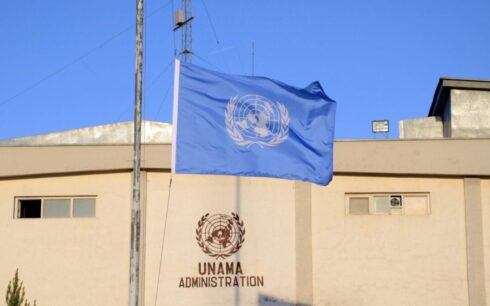Over the past 20 days, Taliban officials have issued contradictory statements regarding the presence of Daesh in Afghanistan, reflecting internal discord as the group grapples with security challenges.
ISIS-Khorasan has claimed responsibility for a series of deadly attacks targeting both civilians and senior Taliban members. Despite these claims, the Taliban’s rhetoric downplays the Daesh threat within Afghanistan.
Mohammad Khalid Hanafi, the Taliban’s minister of vice and virtue, addressed a gathering in Panjshir on Thursday, vehemently denying ISIS’s presence. “There is no Daesh fighter in Afghanistan, and no one can prove its presence here,” he stated.
Contrastingly, just two days prior, the Taliban’s defense ministry accused Pakistan of facilitating ISIS’s entry into Afghanistan. “We have evidence that Daesh entered from Pakistani soil, and these security incidents are organized from there. Pakistan needs to address this issue,” said Enayatullah Khwarazmi, a Taliban spokesman.
Further complicating the narrative, Taliban Foreign Minister Amir Khan Muttaqi claimed last week that three countries are colluding with ISIS on its Afghan operations.
Daesh has extended its violence beyond Afghanistan’s borders, claiming attacks from Jan. 6 to May 7, 2024, in Iran, Russia, and Pakistan as well.
One notable attack occurred on March 21, 2024, outside the New Kabul Bank in Kandahar, which the Taliban acknowledged was conducted by Daesh. The attack resulted in 43 deaths and 45 injuries.
Recent violence includes a bombing at a Shia mosque in Herat and a magnetic mine explosion targeting a Taliban convoy, both claimed by Daesh. The mosque attack in Herat’s Guzara district on April 30 killed six and wounded dozens, while the May 7 convoy attack killed three Taliban members and injured six.
These ongoing attacks raise questions about the credibility of the Taliban’s internal communications regarding the threat posed by ISIS-K.
Political analyst Saleem Paigir emphasized the operational capacity of ISIS networks in Afghanistan, stating, “While ISIS does not control specific territories, it receives support from certain international actors.”
A report by Eurasia highlighted that at least 429 people have been killed in attacks claimed by Daesh, underscoring the persistent threat within the region.





